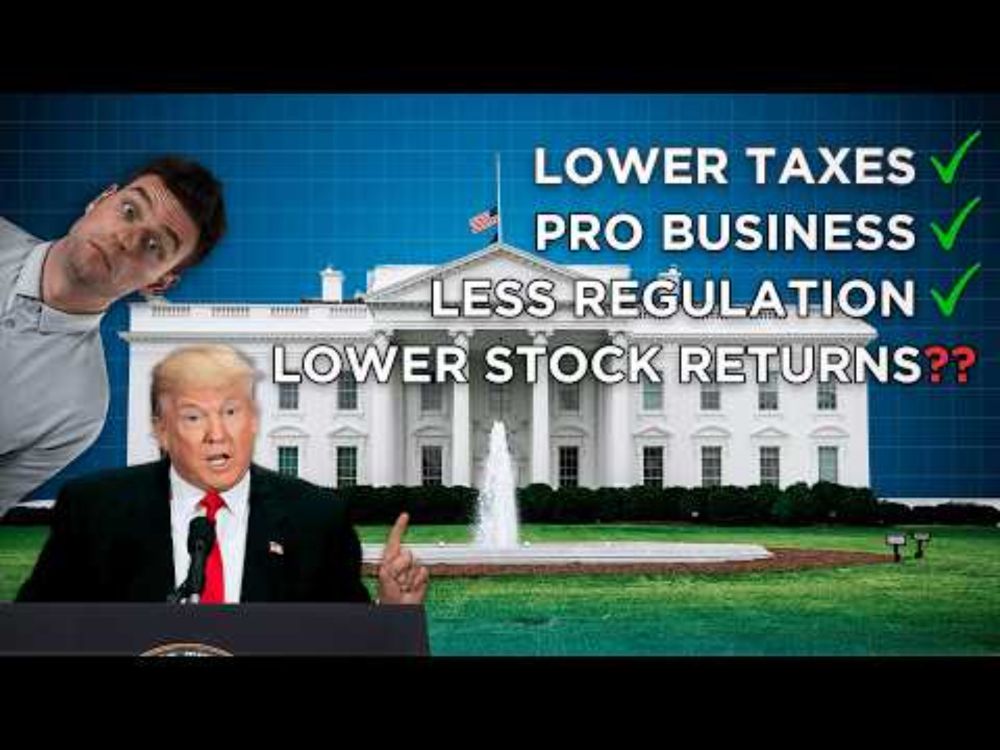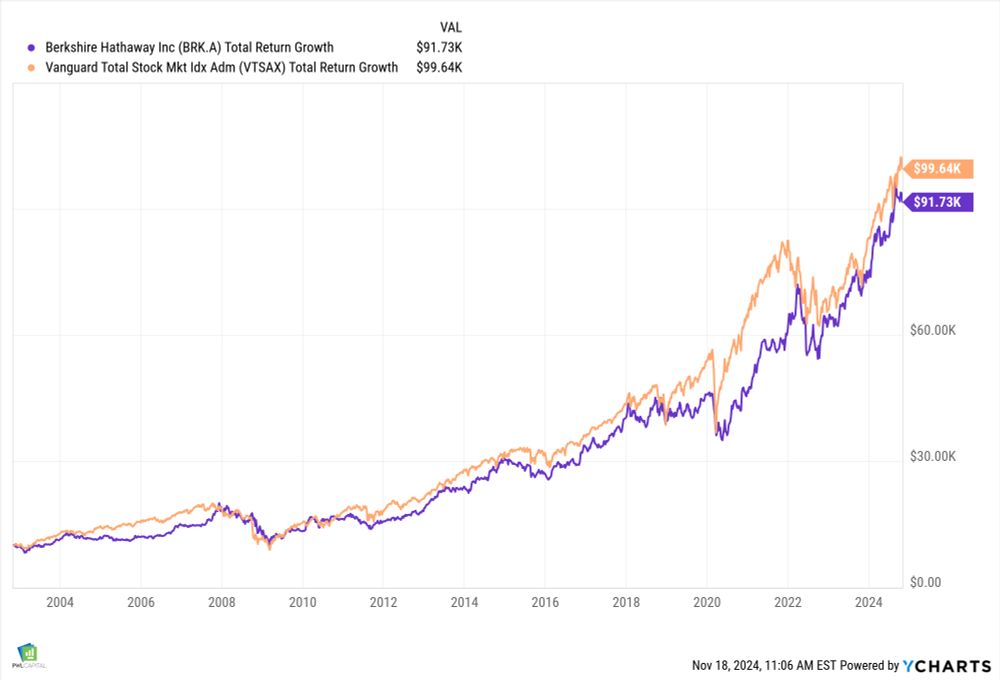It’s coming up next! Don’t have an ETA yet but we are working on it.
16.12.2024 18:39 — 👍 1 🔁 0 💬 1 📌 0It’s coming up next! Don’t have an ETA yet but we are working on it.
16.12.2024 18:39 — 👍 1 🔁 0 💬 1 📌 0Reported.
07.12.2024 21:52 — 👍 1 🔁 0 💬 0 📌 0Thanks. These impersonation accounts are very annoying.
07.12.2024 21:50 — 👍 1 🔁 0 💬 1 📌 0Thanks. Just like Twitter. I’ll have to figure out how to report them.
07.12.2024 21:50 — 👍 1 🔁 0 💬 2 📌 0
Ben's back with some data on the equity risk premium post-Republican win.
No conjecture, no fluff, no politics: just data.
www.youtube.com/watch?v=gY22...
@benjaminfelix.bsky.social
We don’t have a help page but we will be doing a training and feedback webinar open to the public.
21.11.2024 00:20 — 👍 3 🔁 0 💬 1 📌 0
Buffett is held up as proof that active management works. The trick is finding winning managers before the fact, which is not easy. Buffett is no exception.
Rather than trying to replicate his success, most investors should take Buffett's advice: Invest in low-cost index funds.
“The bottom line: When trillions of dollars are managed by Wall Streeters charging high fees, it will usually be the managers who reap outsized profits, not the clients."
"Both large and small investors should stick with low-cost index funds.”
"In my lifetime, though, I’ve identified – early on – only ten or so professionals that I expected would accomplish this feat.”
Ten or so. In his lifetime. That’s something to think about. Buffett concludes this section of the 2016 letter with this:
In his 2016 letter to shareholders Buffett does acknowledge that there will be some successful active managers.
He says “There are, of course, some skilled individuals who are highly likely to out-perform the S&P over long stretches."
"One bequest provides that cash will be delivered to a trustee for my wife’s benefit.
My advice to the trustee could not be more simple: Put 10% of the cash in short-term government bonds and 90% in a very low-cost S&P 500 index fund."
In his 2013 letter to shareholders, Buffett explains:
"My money, I should add, is where my mouth is: What I advise here [low-cost index funds being sensible for most investors] is essentially identical to certain instructions I’ve laid out in my will."
Buffett won the bet easily.
After winning, he explained that he wanted to demonstrate that investors are not getting value from the high fees often paid for investment management, and are likely better-off with low-cost index funds.
Buffett has so much conviction in index funds that in December 2007 he made a 10-year bet worth $1 million.
He bet Protégé Partners that they couldn't pick funds that would beat an S&P 500 index fund over 10 years. They picked five funds-of-funds with over 200 underlying funds.
“Most investors, both institutional and individual, will find that the best way to own common stocks is through an index fund that charges minimal fees. Those following this path are sure to beat the net results ... delivered by the great majority of investment professionals.”
18.11.2024 17:27 — 👍 3 🔁 0 💬 1 📌 0
Skilled managers have the largest funds, but their investors earn returns in line with the risk they are taking. (They could do that cheaper and more reliably with an index fund.)
Buffett agrees with me, and has for many years. In his 1996 letter to shareholders, he explains:
This point is also made in a highly cited 2004 paper where the authors describe an efficient market for manager skill.
Investors identify skilled managers based on performance, and allocate to them up to the point that they can no longer beat the market. doi.org/10.1086/424739
Even for managers with small amounts of money, Buffett comments that it's very hard for anybody to identify the good ones before the fact.
Once it’s obvious that they are good managers, they run into the same problem of getting too large to continue their outperformance.
He makes no promises that Berkshire will do better than the S&P 500 going forward.
The crux of the problem is well known: diminishing returns to scale. The larger an active manager’s base of assets gets, the harder it gets for them to outperform the market.
His explanation highlights one of the challenges of long-term success in active management.
He mentions that his best year was in 1954 when he was managing a relatively small amount of money, but that it’s gotten harder to outperform with larger amounts.

The fact is that Berkshire Hathaway has underperformed a Vanguard U.S. equity index mutual fund for the 22 years ending October 2024.
Buffett was asked about Berkshire’s underperformance at the 2020 shareholder meeting.
While the full history back to 1965 is beyond impressive, recent history has been less favorable.
I don’t want to come off as disrespectful or dismissive. Buffett is a wealth of knowledge and wisdom, a pleasure to listen to and read, and his long-term success in undeniable.
But that’s easier said than done.
As the current Warren Buffett himself will tell you, he is no longer the obvious answer to beating the market, and he hasn’t been for a while.
Since Buffett took control of Berkshire Hathaway in 1965, the stock has returned an annualized 19.8% through the end of 2023, nearly double the S&P 500 over the same period.
If you can find the next Warren Buffett, you should absolutely invest with them...
"What about Warren Buffett?"
If it’s possible to beat the market, as Buffett has for decades, why would anyone settle for market returns from low-cost index funds?
It’s a valid question